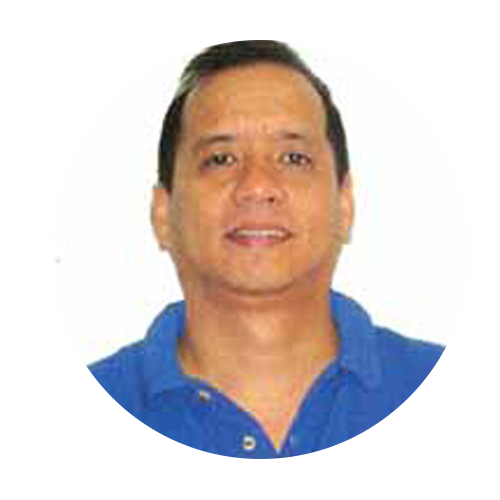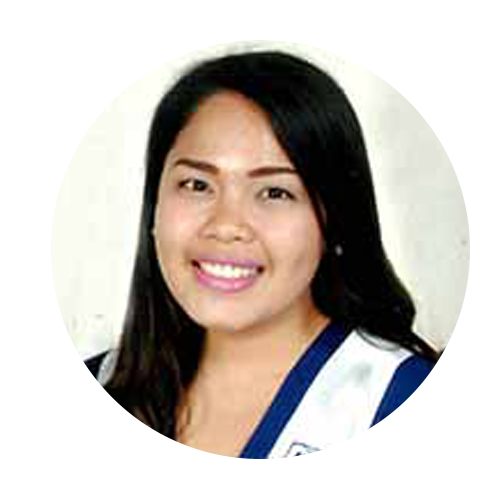WebInfo
The Xavier University - Year of Service (XU-YOS) is a volunteer sending program that helps facilitate peace and social development in Mindanao. The program is fully integrated in the University through the RSO Cluster, which will hopefully strengthen the venue for continuing Ignatian Leadership Formation of potential graduates. A direct opportunity for engaged campus leaders who will be willing to have year-long leadership engagement in the service of others and society, especially in the frontiers of social development.
Committed to train and form young professionals with competence, commitment and deep spirituality as peace builders and agent for social development. YOS commits to enhance the Ignatian Leadership Formation of the prospective graduates into young professionals with conscience that will strengthen their Faith as their basis of serving others especially the marginalized sectors; competence of a heroic leader and a commitment to build people in community development.
YOS is aimed to deploy volunteers to partner organizations such as Non-Government Organizations, Local Government Units, Dioceses, Social Action Centers and Parishes, to assist in their work of empowering those in the marginalized sectors.
XU-YOS Vision
Envisioned to develop a generation of engaged and committed professionals as Human Resource who shall bridge social divides and needs of the rural and urban communities in Mindanao
Deployment of young professional volunteers to host organizations and institutions serving the marginalized sectors.
Disaster Risk Management (DRM Program)
- This program advocates disaster risk reduction and management using science-based information and methodologies; with focus on prevention, mitigation, and preparedness strategies particularly at the local and micro-scale levels (cities, municipalities, barangays, and sitios). It also includes studies of possible impacts of the changing climate and maintaining a weather station based in the university.
- It uses technical researches and evidence-based strategies in addressing the pre- and post-disaster needs of communities by conducting the following:
- Disaster Risk Assessment and Mapping
- Hazard Monitoring (HazaMo)
- Rapid Damage Assessment (RapiDA)
- Currently, XUERC is the lead unit of the university-wide XU DRRM Program.
Computer-Aided Services (CAS Program)
- This program aims to enhance the digital competency and skills of the faculty members and students of the College of Engineering, and the XU community. It also caters customized training modules and workshops to partner industries and communities.
- It also intends to promote the effective use of technologies and digital platforms to aid in policy formulation, reviews, and implementation.
- XUERC offers capacity building training modules and workshops on the following technical tools (but not limited to):
- Geographic Information System (GIS)
- Computer-Aided Design (CAD)
- Specialized Software (eg Sketch-Up, GRASP, SAP, Vensim, Free Mind)
- Basic and Advanced Computer Skills (eg Microsoft Office, Photoshop)
Research and Publication (RePublic Program)
- This program facilitates and manages the various researches of the College of Engineering, ensuring they meet quality standards set by accrediting bodies (CHED, NHERA, DOST, etc). It also serves as an oversight to prioritize research activities that address contemporary issues and that they are parallel with the research agenda and priority thematic engagements of the university.
- XUERC also serves as the “clearing house” of the Kinaadman Research Center and the XU Press, the central research and publication arms of the university, respectively.
- Every year, XUERC publishes the FYP Journal, a compendium of researches done by senior engineering students.
- Lecture series are also regularly conducted for research and project outputs dissemination and to entice young researchers for further projects.
Capacity Building, Internship, and Networking (CaBIN Program)
- This program gears towards the advancement of the technical expertise and specializations of faculty members and students of the College of Engineering, by facilitating various training and workshop opportunities, industry immersion, service learning, expert exchange, and on-the-job training programs.
- It also caters foreign and local interns and volunteers who wish to learn and experience the various technology-based and community-oriented projects. It also offers opportunities for deeper self-reflection and processing sessions of the role of engineers and scientists amid the fast-evolving developments.
- It also aims to establish strong and sustainable linkages with industries and partner communities for collaborative projects and activities.
Consultancy and Special Projects (ConSpec Program)
- This program manages and promotes the role of engineers in providing technical expertise to various clients and customers.
- In particular, XUERC offers the following technical services:
- Structural and Geotechnical Analysis and Design
- Construction Management
- Transportation Systems Analysis and Design
- Power Engineering Design
- Energy Audit and Appropriate Technologies
- Electronics and Acoustic Design
- Environmental Impact Assessment
- Waste Management Strategies (solid waste, wastewater, emissions)
- Mechanical and Machine Design (including HVAC)
- Systems Analysis and Engineering
- Database and Information Management
- Laboratory Testing (Construction Materials, Chemical Analysis)
| Name and Designation | Photo |
Engr. Ermin Stan B. Pimentel |  |
Anna Fe Sanfra N. Jarap |  |
| Name and Designation | Photo |
Ms Maria Victoria B Trinidad |  |
Ms Manelyn O Binatao |  |


































